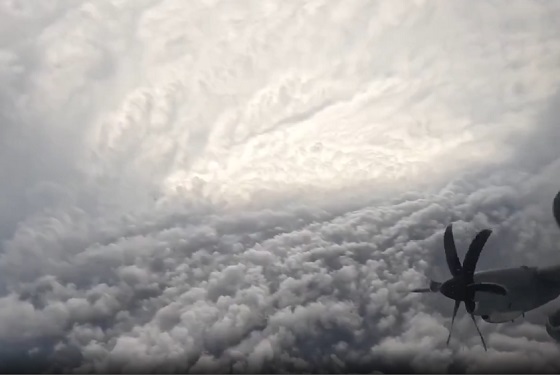Alberta
Albertans as young as 58 with health conditions now eligible for the jab as province moves to 2B vaccine stage

From the Province of Alberta
Phase 2B vaccine appointments available through AHS
Albertans born in 1963 or earlier with underlying health conditions now have another way to get the COVID-19 vaccine.
As part of Phase 2B of Alberta’s vaccine rollout, anyone born in 1963 or earlier with eligible health conditions can now book appointments with Alberta Health Services (AHS) online or by calling 811.
Anyone with eligible health conditions born in 1963 or earlier can also continue booking at participating pharmacies in Calgary, Edmonton and Red Deer. In the coming weeks, as more vaccine supply is available, pharmacies across Alberta will begin to offer bookings.
As Phase 2B rolls out, additional birth years for Albertans with underlying health conditions will be added in the coming days, based on vaccine supply.
By April 23, all Albertans born in 2005 or earlier with eligible high-risk underlying health conditions will be able to book an appointment through pharmacies and AHS.
“We are expanding the vaccine rollout as quickly and safely as possible. Now, Albertans born in 1963 or earlier with diabetes, disabilities, cancer and many other conditions can book through AHS, offering another chance to get the vaccine as soon as possible. I know this will bring peace of mind to those with high-risk health conditions and their loved ones, and we will continue to put pressure on the federal government until every last dose arrives.”
“Launching Phase 2B provides more Albertans, their families, and our communities across the province the hope of brighter days ahead. Our staff are working diligently, every day, to ensure we are providing vaccine to eligible Albertans as quickly and efficiently as possible and appreciate everyone’s patience as we work to include more eligible Albertans in the weeks ahead.”
Eligible health conditions
Phase 2B of Alberta’s vaccine rollout focuses on those who have at least one of the following underlying health conditions:
- A missing spleen or a spleen that is no longer working
- Cancer
- Chronic heart disease and vascular disease
- Chronic kidney diseases requiring regular medical monitoring or treatment
- Chronic liver disease due to any cause
- Chronic neurological disease
- Chronic respiratory (lung) diseases
- Diabetes requiring insulin or other anti-diabetic medication to control
- A weakened immune response due to disease or treatment
- Anyone who is currently pregnant
- Severe mental illness or substance use disorder requiring a hospital stay during the past year
- Severe obesity
- Severe or profound learning disabilities or severe developmental delay
- Solid organ, bone marrow or stem cell transplant recipients
Additional information on eligible health conditions, including examples, is available at Alberta.ca/vaccine.
Individuals are not required to provide proof of health condition, such as a doctor’s note. However, you may want to talk to your doctor or pharmacist to help you understand if your condition is on this list.
Alberta’s government is responding to the COVID-19 pandemic by protecting lives and livelihoods with precise measures to bend the curve, sustain small businesses and protect Alberta’s health-care system.
Quick facts
- Anyone eligible in Phase 1 and 2A of Alberta’s vaccine rollout who hasn’t yet received the vaccine can continue to book their appointment through a participating pharmacy or AHS.
- As of April 4, more than 690,000 doses of COVID-19 vaccine had been administered to Albertans.
Alberta
Alberta government’s plan will improve access to MRIs and CT scans

From the Fraser Institute
By Nadeem Esmail and Tegan Hill
The Smith government may soon allow Albertans to privately purchase diagnostic screening and testing services, prompting familiar cries from defenders of the status quo. But in reality, this change, which the government plans to propose in the legislature in the coming months, would simply give Albertans an option already available to patients in every other developed country with universal health care.
It’s important for Albertans and indeed all Canadians to understand the unique nature of our health-care system. In every one of the 30 other developed countries with universal health care, patients are free to seek care on their own terms with their own resources when the universal system is unwilling or unable to satisfy their needs. Whether to access care with shorter wait times and a more rapid return to full health, to access more personalized services or meet a personal health need, or to access new advances in medical technology. But not in Canada.
That prohibition has not served Albertans well. Despite being one of the highest-spending provinces in one of the most expensive universal health-care systems in the developed world, Albertans endure some of the longest wait times for health care and some of the worst availability of advanced diagnostic and medical technologies including MRI machines and CT scanners.
Introducing new medical technologies is a costly endeavour, which requires money and the actual equipment, but also the proficiency, knowledge and expertise to use it properly. By allowing Albertans to privately purchase diagnostic screening and testing services, the Smith government would encourage private providers to make these technologies available and develop the requisite knowledge.
Obviously, these new providers would improve access to these services for all Alberta patients—first for those willing to pay for them, and then for patients in the public system. In other words, adding providers to the health-care system expands the supply of these services, which will reduce wait times for everyone, not just those using private clinics. And relief can’t come soon enough. In Alberta, in 2024 the median wait time for a CT scan was 12 weeks and 24 weeks for an MRI.
Greater access and shorter wait times will also benefit Albertans concerned about their future health or preventative care. When these Albertans can quickly access a private provider, their appointments may lead to the early discovery of medical problems. Early detection can improve health outcomes and reduce the amount of public health-care resources these Albertans may ultimately use in the future. And that means more resources available for all other patients, to the benefit of all Albertans including those unable to access the private option.
Opponents of this approach argue that it’s a move towards two-tier health care, which will drain resources from the public system, or that this is “American-style” health care. But these arguments ignore that private alternatives benefit all patients in universal health-care systems in the rest of the developed world. For example, Switzerland, Germany, the Netherlands and Australia all have higher-performing universal systems that provide more timely care because of—not despite—the private options available to patients.
In reality, the Smith government’s plan to allow Albertans to privately purchase diagnostic screening and testing services is a small step in the right direction to reduce wait times and improve health-care access in the province. In fact, the proposal doesn’t go far enough—the government should allow Albertans to purchase physician appointments and surgeries privately, too. Hopefully the Smith government continues to reform the province’s health-care system, despite ill-informed objections, with all patients in mind.
Alberta
Canada’s heavy oil finds new fans as global demand rises

From the Canadian Energy Centre
By Will Gibson
“The refining industry wants heavy oil. We are actually in a shortage of heavy oil globally right now, and you can see that in the prices”
Once priced at a steep discount to its lighter, sweeter counterparts, Canadian oil has earned growing admiration—and market share—among new customers in Asia.
Canada’s oil exports are primarily “heavy” oil from the Alberta oil sands, compared to oil from more conventional “light” plays like the Permian Basin in the U.S.
One way to think of it is that heavy oil is thick and does not flow easily, while light oil is thin and flows freely, like fudge compared to apple juice.
“The refining industry wants heavy oil. We are actually in a shortage of heavy oil globally right now, and you can see that in the prices,” said Susan Bell, senior vice-president of downstream research with Rystad Energy.
A narrowing price gap
Alberta’s heavy oil producers generally receive a lower price than light oil producers, partly a result of different crude quality but mainly because of the cost of transportation, according to S&P Global.
The “differential” between Western Canadian Select (WCS) and West Texas Intermediate (WTI) blew out to nearly US$50 per barrel in 2018 because of pipeline bottlenecks, forcing Alberta to step in and cut production.
So far this year, the differential has narrowed to as little as US$10 per barrel, averaging around US$12, according to GLJ Petroleum Consultants.
“The differential between WCS and WTI is the narrowest I’ve seen in three decades working in the industry,” Bell said.
Trans Mountain Expansion opens the door to Asia

Oil tanker docked at the Westridge Marine Terminal in Burnaby, B.C. Photo courtesy Trans Mountain Corporation
The price boost is thanks to the Trans Mountain expansion, which opened a new gateway to Asia in May 2024 by nearly tripling the pipeline’s capacity.
This helps fill the supply void left by other major regions that export heavy oil – Venezuela and Mexico – where production is declining or unsteady.
Canadian oil exports outside the United States reached a record 525,000 barrels per day in July 2025, the latest month of data available from the Canada Energy Regulator.
China leads Asian buyers since the expansion went into service, along with Japan, Brunei and Singapore, Bloomberg reports. 
Asian refineries see opportunity in heavy oil
“What we are seeing now is a lot of refineries in the Asian market have been exposed long enough to WCS and now are comfortable with taking on regular shipments,” Bell said.
Kevin Birn, chief analyst for Canadian oil markets at S&P Global, said rising demand for heavier crude in Asia comes from refineries expanding capacity to process it and capture more value from lower-cost feedstocks.
“They’ve invested in capital improvements on the front end to convert heavier oils into more valuable refined products,” said Birn, who also heads S&P’s Center of Emissions Excellence.
Refiners in the U.S. Gulf Coast and Midwest made similar investments over the past 40 years to capitalize on supply from Latin America and the oil sands, he said.
While oil sands output has grown, supplies from Latin America have declined.
Mexico’s state oil company, Pemex, reports it produced roughly 1.6 million barrels per day in the second quarter of 2025, a steep drop from 2.3 million in 2015 and 2.6 million in 2010.
Meanwhile, Venezuela’s oil production, which was nearly 2.9 million barrels per day in 2010, was just 965,000 barrels per day this September, according to OPEC.
The case for more Canadian pipelines

Worker at an oil sands SAGD processing facility in northern Alberta. Photo courtesy Strathcona Resources
“The growth in heavy demand, and decline of other sources of heavy supply has contributed to a tighter market for heavy oil and narrower spreads,” Birn said.
Even the International Energy Agency, known for its bearish projections of future oil demand, sees rising global use of extra-heavy oil through 2050.
The chief impediments to Canada building new pipelines to meet the demand are political rather than market-based, said both Bell and Birn.
“There is absolutely a business case for a second pipeline to tidewater,” Bell said.
“The challenge is other hurdles limiting the growth in the industry, including legislation such as the tanker ban or the oil and gas emissions cap.”
A strategic choice for Canada
Because Alberta’s oil sands will continue a steady, reliable and low-cost supply of heavy oil into the future, Birn said policymakers and Canadians have options.
“Canada needs to ask itself whether to continue to expand pipeline capacity south to the United States or to access global markets itself, which would bring more competition for its products.”
-

 Crime2 days ago
Crime2 days agoPublic Execution of Anti-Cartel Mayor in Michoacán Prompts U.S. Offer to Intervene Against Cartels
-

 International2 days ago
International2 days agoNigeria better stop killing Christians — or America’s coming “guns-a-blazing”
-

 Alberta14 hours ago
Alberta14 hours agoAlberta government’s plan will improve access to MRIs and CT scans
-

 Alberta1 day ago
Alberta1 day agoCanada’s heavy oil finds new fans as global demand rises
-

 Justice2 days ago
Justice2 days agoA Justice System That Hates Punishment Can’t Protect the Innocent
-

 Business22 hours ago
Business22 hours agoTrump’s Tariffs Have Not Caused Economy To Collapse
-

 Daily Caller22 hours ago
Daily Caller22 hours agoTrump Reportedly Planning Ground Troops, Drone Strikes On Cartels In Mexico
-

 Daily Caller1 day ago
Daily Caller1 day agoNigeria Would Welcome US Intervention In Massacre Of Christians By Islamic Terror Groups










